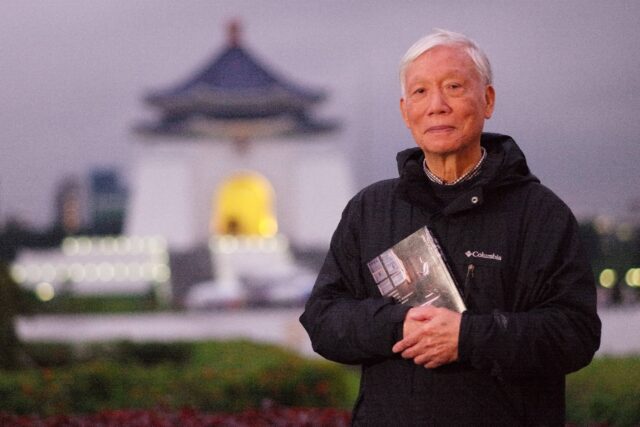From a homeless child to a leader of Hong Kong’s struggle for democracy, 79-year-old Reverend Chu Yiu-ming tells all in a new memoir — except for 30 pages blanked out to protest official censorship.
“Confessions of a Bell Toller” is Chu’s account of a life spent helping the underprivileged and struggling against China’s authoritarian rule, including by co-organising a months-long demonstration for universal suffrage in Hong Kong in 2014 for which he received a suspended jail sentence.
In an interview from Taiwan, where he lives in self-imposed exile, Chu told AFP the redacted parts of his memoir — styled as empty boxes — deal with an earlier untold story.
He was part of a secret campaign to spirit hundreds of dissidents out of China after Beijing’s deadly crackdown on democracy protests in Tiananmen Square in 1989 –- but readers of the book won’t learn any of the details.
“I wanted to keep the pages simply blank as a protest to the political censorship imposed by the Hong Kong authorities, but my editor chose the little boxes,” Chu said.
The memoir’s title comes from a speech Chu delivered in court in 2019, after he was convicted of “conspiracy to cause public nuisance” for helping to organise the 2014 protests.
“I am willing to become a brave bell toller to wake the sleeping souls in a ridiculous time, in an authoritarian country, in a distorted society,” Chu said at the time.
Chu told AFP that he and other leaders of the 2014 protests had warned then that a more radical movement would arise if their calls for political reform were rejected.
Five years later, hundreds of thousands of people flooded the streets to demand greater freedoms in enormous, sometimes violent, protests.
Beijing responded with a harsh crackdown on the city’s once-vibrant civil society, enacting a sweeping national security law that has effectively squashed dissent.
A changed government
Born in Hong Kong in 1944, Chu spent his childhood with his grandmother in southern China, where his earliest memories of hunger and social unrest cemented his resentment of the Chinese Communist Party.
After his grandmother’s death, he spent several years living rough on the streets of Hong Kong before being taken in by a Christian fellowship.
In 1969 he went to study theology in Taiwan, where he met the Baptist minister Chow Lien-hwa, who served as chaplain to President Chiang Kai-shek while also aiding political dissidents who opposed his regime.
From Chow, Chu wrote in the memoir that he came to believe a man of God must “not only devote (himself) to the church, but also to social progress and democratisation of his country”.
Chu eventually returned to Hong Kong, where he built a church centre that cared for the poor, helped smuggle mainland activists to safety, and became a founding member of a group that commemorated the Tiananmen massacre with an annual candlelight vigil — one that has since been effectively banned.
Later, he co-led the 2014 push for voting rights that saw fellow activists Benny Tai and Chan Kin-man sentenced to sixteen months in prison.
Tai is currently facing a charge of “conspiracy to subvert state power” and has been behind bars for over 1,000 days.
“I think Tai is serving the jail term for the Hong Kong people,” Chu said of his old friend, choking back sobs.
“I think the government has changed… It can’t accept any voices other than those agreeing with it.”
– Keeping the faith –
Chu’s book was published on November 24, the first anniversary of the “white paper” protests that began as a response to China’s harsh coronavirus restrictions but later grew to encompass calls for democracy.
Chu said the redacted pages of his book are also a nod to these protests, named for the blank sheets of paper held up by participants to symbolize censorship.
He left Hong Kong in December 2020, after pro-Beijing newspapers alleged he had helped democracy protesters attempt to flee to Taiwan in a speedboat, an accusation the reverend saw as “a very strong signal” of danger.
Although he has no plans to return, he said he hopes his book encourages younger generations not to give up.
“Young people can overcome the difficulties they are now facing, as long as they do not surrender their faith,” he said.

COMMENTS
Please let us know if you're having issues with commenting.